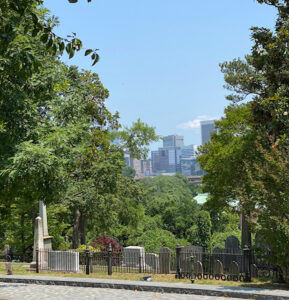 by Jon Baliles
by Jon Baliles
Two weeks ago, you probably heard the news about the vote promise scam from Richmond Mayor Levar Stoney and the casino advocates that they would put 2/3 of the annual casino tax revenue towards early childcare for kids in Southside. This week, you might have heard about the press conference that the unions held that said they reached an agreement with the casino advocates that would promise hundreds or thousands of new union jobs and “paths into the middle class” for young people and families.
While it is unconfirmed at this time, there are several rumors going around that in another few weeks that casino advocates will hold a press conference promising eternal life for seniors if they vote for the casino referendum on November 7th.
Who knows, at this rate of promising anything and everything for your vote, the casino advocates might have Oprah in RVA by late October offering new cars for any remaining voters as long as they have a mail-in ballot marked Yes. So, don’t vote too early!
The second casino referendum has become a leveraged buyout of the voters and there is no dollar amount or offer that won’t be matched by the casino advocates to get the referendum across the line the second time around. They have already raised and committed $8 million to buy your vote, and that total will almost certainly go up.
But alas, these and the other yet-to-be-revealed voting scams are just a way to hoodwink voters into believing that the casino will exist to do more good for the community than it will for the owners and investors. Which is clearly not the case. It isn’t the case in Bristol, or Danville, or Portsmouth or any casino in the country.
One Southside resident sees the casino scam and false promises of largesse and told CBS6, “It’s a bloodsucker. It’s going to take more than it gives, and it’s smoke and mirrors,” said Richmond resident Joe Ellis. “You can never have an institution that’s based upon making a profit from taking money from people without giving something substantially back to the people over a prolonged period of time. How can that be sustainable?”
“Has [the lottery] solved the problems with education as they promised it would? It has not,” Ellis said. “Gambling is not going to solve the problems with childcare.”
In the same story, Dr. Bob McNab, economics professor at Old Dominion University, also raised a pertinent question that you don’t hear talked about much: Who bears the burden of the tax? The 2019 Joint Legislative Audit and Review Commission (JLARC) study that preceded the authorization of casinos by the state legislature found that 90% (or more) of the customer base for the casino would come from locals or those within a two-hour drive.
So, all the revenues the city promises it will receive including the funding for a childcare trust fund would mostly be supported by local and regional residents simply by shifting and reallocating local and regional dollars — but with a cut for the casino owners and investors, of course.
McNabb asked, “Who is gambling at the establishment? If it’s local residents, it’s a local tax. If you could increase the number of people coming from outside the region, then you’re exporting the tax, and that would be the argument I think proponents would like to make,” McNab said. “But again, the literature tends to argue that most gamblers at casinos come from within a two-hour area, and that’s why the burden is going to primarily be in the Richmond area.”
An ebbing tide leaves all boats stranded.
Jon Baliles is a former Richmond city councilman. Republished with permission from RVA 5×5.

Leave a Reply
You must be logged in to post a comment.